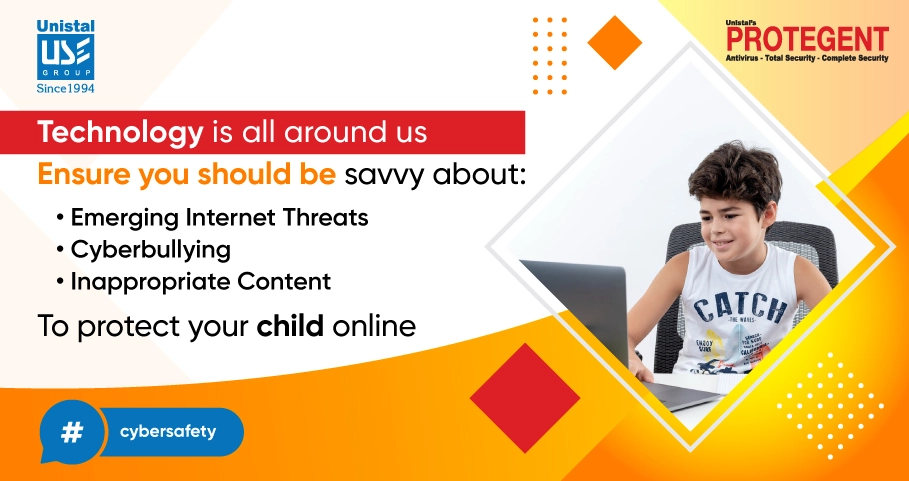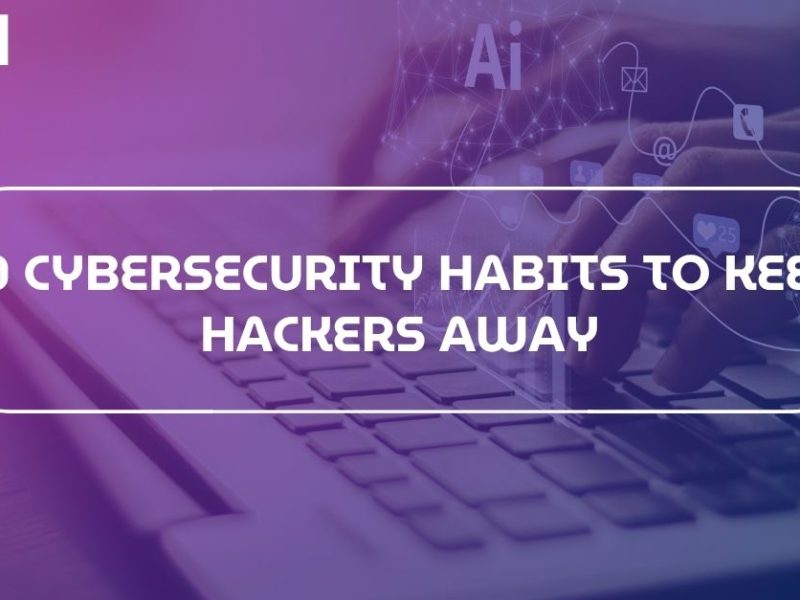
Worried about your child’s cybersecurity? Here are the most common threats facing your children
Children are among the most active internet users. True, isn’t it? And, unfortunately, they are subjected to an increasing number of cyber threats. If you’ve given your child a phone and allowed them to spend considerable time on the Internet, it’s imperative to monitor their internet activities with the help of advanced Parental Control. Only monitoring isn’t enough but parents should also be aware of the most common cyber threats that can disrupt children’s digital life and affect their mental well-being.
Cybersecurity has become increasingly relevant in today’s digital age, and it’s imperative to keep your children safe online. The internet is a vast space where anyone can access anything without boundaries. Easy access to anything online exposes your children to:
- Emerging threats
- Cyberbullying
- And, Inappropriate content
As a parent or guardian, it’s essential to teach your child about online safety and cyber security. Here are some of the most common online threats that you should be aware of if you want to ensure your child’s online safety.
- Emerging Internet threats
Today, children don’t know the world without the Internet. For them, surfing the web for information and for entertainment is just as normal as drinking water. It comes as no surprise that the digital world has done wonders for children and opened new doors to learning and other exciting opportunities. However, this vast world has some dark corners that you as a parent need to know.
- Phishing
It involves the use of emails to lure a child’s interest by sending too-good-to-be-true deals & tricking them into clicking on malicious links or opening email attachments.
“Often, emails are designed to grab children’s attention with catchy headlines like! Hey, not having money to buy your favorite game? Click on this link earn money to buy your favorite game!
Phishing emails can come at any time of the day and cybercriminals keep a note of the websites popular among the younger generation. Once your child clicks on the link, their account can be easily hacked and accessed.
As a parent or guardian, it’s your prime responsibility to teach your child to never click on email links and attachments coming from unknown sources. Also, you can install Total Security Software on your child’s laptop as it comes with Anti-Phishing protection.
- Malware
Start by checking your child’s digital habits as it is the most effective way to teach them about malware. It is any program or file that is not safe for your child’s laptop. It includes viruses, spyware, and adware that may compromise your child’s online accounts.
You can use the highest-quality Antivirus Software to protect your child’s computer and laptop!
Here are some tips to protect your children from online dangers
While educating your child about online threats, parents can take certain measures to protect the younger generation.
- Keep your child’s laptop in a place to keep your eyes on their activities
- Block websites or applications you think are malicious for your children
- Exercise Parental Control to monitor your child’s internet activities
2. Cyberbullying
When a person uses the internet or technology to harass or threaten a person, this is called cyberbullying. It involves teenagers, but it is not limited to them. Adults also experience bullying or body shaming.
Kids stay online every day. Every day your child uses smartphones, tablets, and laptops for learning as well as to socialize with friends and family members. While there are a number of ways your child is bullied through the internet, there are some main categories under which harassment falls. These categories include harassment, impersonation, wrong photograph usage, video shaming, and body shaming.
For instance, children joke around with each other, but sometimes they might find it difficult to identify that there is a fine line of difference between a joke and bullying. But, you as a parent need to tell your child that if they ever feel hurt or upset about it, ask them to take action.
What are the effects of cyberbullying?
Cyberbullying through social media is prevalent in today’s digital age and causes significant damage to your child.
Mentally – Feeling upset, embarrassed, or afraid
Physically – Loss of sleep, headaches, or stomach aches
Emotionally – Losing interest in once-loved things
As a parent or guardian, ask your child and remind them to always come to you if they are being bullied online as you won’t be able to help them out unless you know what’s happening!
How to prevent cyberbullying?
When it comes to preventing cyberbullying, protecting your child isn’t enough; you should help your child implement some safety measures to further avoid the risk.
Here are some ways that parents can follow prevent cyberbullying:
- Protect your child’s social media accounts and digital devices
- Remind your child to maintain some distance when sharing sensitive information
- Let your child become cautious and think twice before posting anything
- Set a screen time limit on their laptop with Parental control
- Monitor your child’s activities at least once a day and keep a check on them
3. Inappropriate content
The Internet is full of inappropriate content that’s not considered safe for children. Your children might search for it or sometimes find it accidentally.
Here are some do’s and don’ts that could prevent your child from getting exposed to inappropriate content.
- Sensitize your child to unsafe content if your child has access to all the devices at home.
- Ensure that all unwanted apps are deleted before handing over the device to your child.
- Don’t leave your child alone with a digital device.
- Don’t give your child smartphones, laptops, and tablets as treats to children.
- Make your child aware of the harmful effects of oversharing on social media.
- Inform your child to never share personal information.
- Sensitize your child about the “non-safe content” that exists on the internet
- Set up firewalls & ad blockers with Total Security
Before anything else, always be ready to comfort your child if they accidentally come across bad content on the Internet and are traumatized with that.
To conclude,
Without a doubt, the Internet has made our lives easier. But, at the same time, it has exposed our children to many online dangers.
Therefore, parents must be vigilant and proactive in safeguarding their child’s cybersecurity. By understanding the common threats faced by children and implementing appropriate measures, parents can ensure a safe and secure online environment for their children to explore, learn, and connect in a better way.
Disclaimer:
The views expressed in the blog are of the blogger and do not necessarily represent or reflect the views written on the website.




